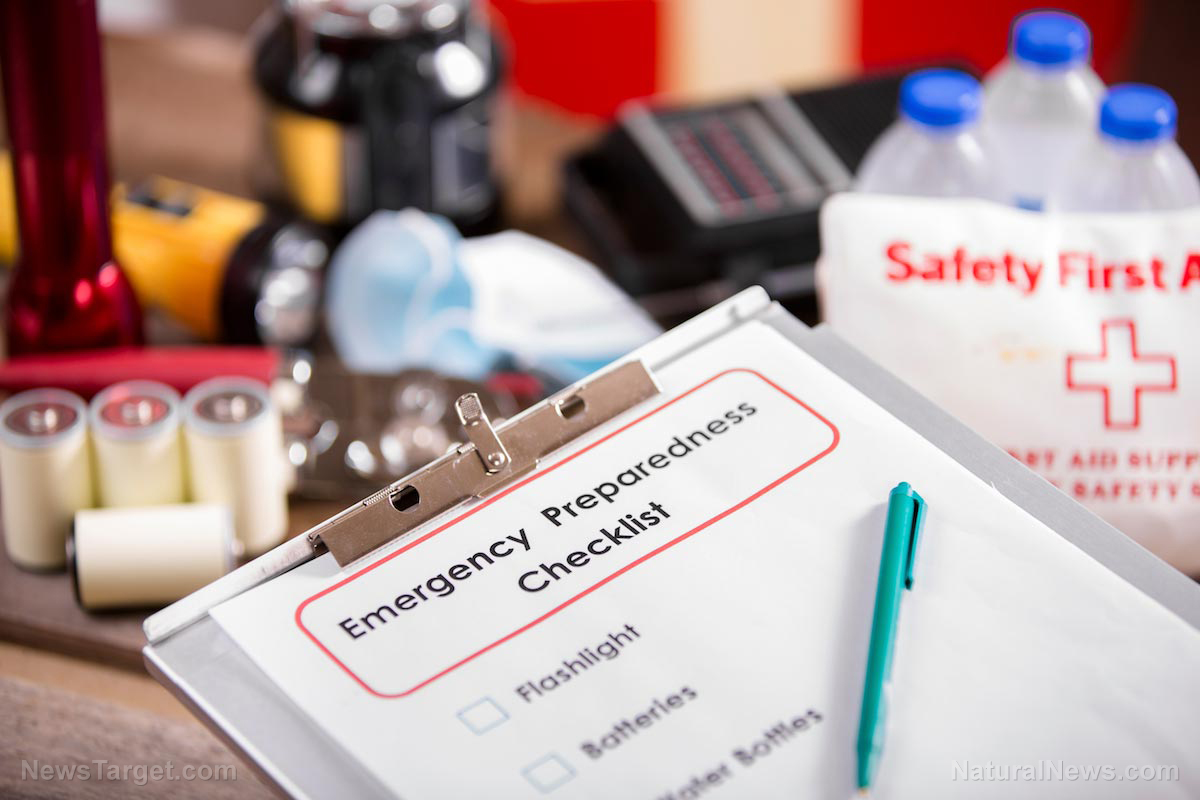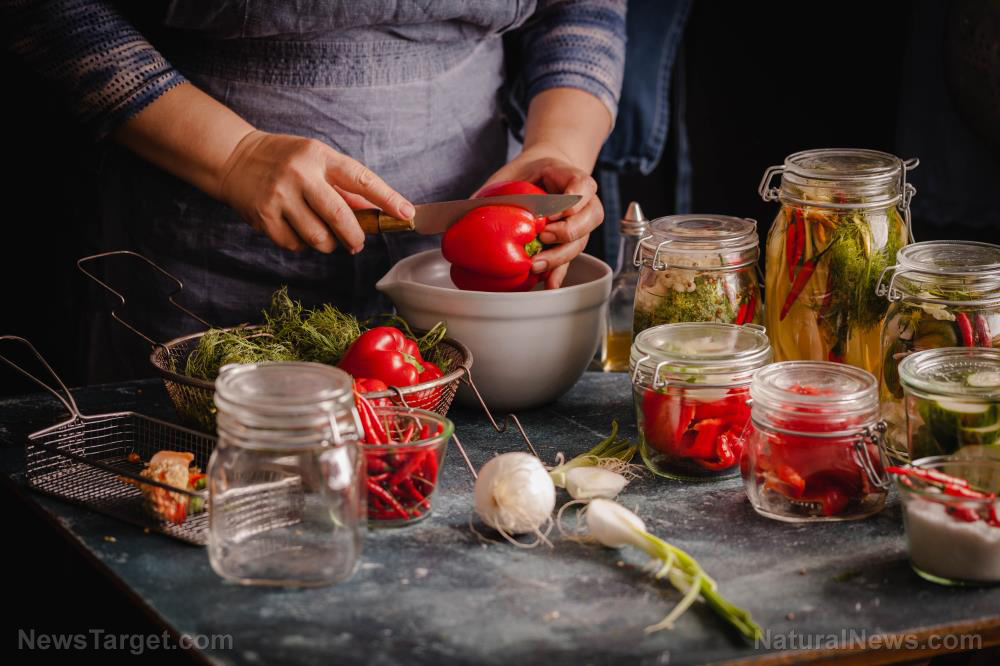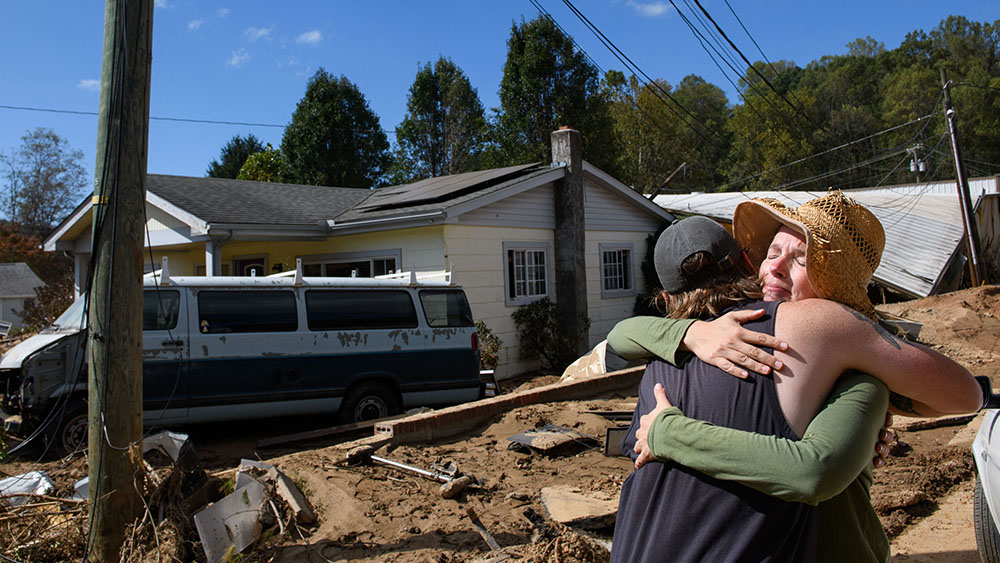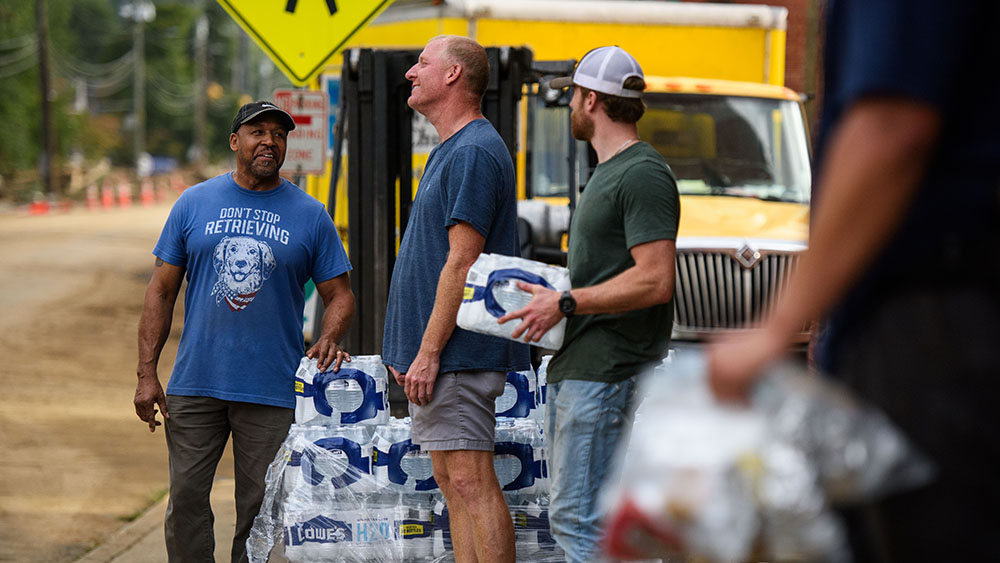Protecting your homestead: Practical tips for long-term farm and livestock security
11/06/2024 / By Olivia Cook

In a long-term survival scenario, your homestead becomes a valuable asset, providing food, resources and a haven for you and your family. However, it also becomes a potential target for predators and marauding groups when SHTF.
Secure your property to ensure survival and maintain self-sufficiency with these tips:
Implement a good security system
A robust security system is crucial for monitoring your property and deterring potential thieves. Install cameras around your property, especially near entry points and vulnerable areas. Alarms, infrared systems and motion sensors can provide early warnings of suspicious activity. This not only helps deter intruders but also provides valuable evidence in case of theft. Regularly check and maintain your security systems to ensure they are functioning correctly.
Install early warning systems
Early warning systems can alert you to potential threats before they reach your doorstep. Motion-sensor lights around your property can startle intruders and provide early detection. Solar-powered lights are an excellent option since they work even during power outages. Installing simple, cost-effective alarms around your property, such as tripwire alarms or perimeter alert systems, can trigger a loud noise when someone crosses the boundary, giving you time to prepare and respond to a threat. (Related: Homesteading 101: How to protect your livestock from common predators.)
Secure entry points
Secure the entry points to your home and other buildings/structures inside your property. Reinforce doors with solid wood or metal and install heavy-duty locks. Use security bars on windows and ensure they are made of shatter-resistant glass. Adding a peephole or security camera to your front door allows you to see who is outside before opening it. For barns and other structures, use padlocks and reinforce doors with additional braces. Regularly check these locks and structures for any signs of tampering.
Use identification methods for your livestock
Properly marking and tagging your livestock can help you track and identify your animals if they are stolen. Use accepted identification methods, such as ear tags, microchips and/or tattoos. This makes it easier to recover stolen animals and provide evidence of ownership to authorities. Keeping detailed records of your livestock, including photos and descriptions, can further aid recovery efforts. (Related: How to decide which animals to raise on your small farm.)
Secure livestock pens
Your livestock is crucial for self-sufficiency. They provide eggs, meat, milk and other resources as well as companionship. To protect them from predators and thieves, secure livestock pens with sturdy fencing or consider using electric fencing for added security. At night, always bring smaller animals like chickens and rabbits into secure coops or hutches. Larger animals, such as cows and goats, should also be kept in well-fenced pastures with secure shelters.
Keep animals clean and dry
Maintaining clean, dry and well-ventilated areas for your livestock reduces the odds of dangerous bacteria and viruses getting a foothold. Most animals can tolerate cold temperatures with proper hair coats or wool, but adequate ventilation is more important than temperature control. Regularly clean and dry their living areas to ensure a healthy environment.
Clean feeding and watering areas
Regularly empty, clean and refill food and water troughs to prevent the buildup of germs that can lead to diseases. Clean feeding and watering areas reduce the risk of contamination and help keep your livestock healthy.
Watch for ways germs can reach your livestock
Be mindful of how germs can be introduced to your farm. Clothing, feedbags, shoes, trailers, trucks, etc. can all carry germs that could infect your livestock. Ensure that these items are clean and disinfected before they come into contact with your animals.
Minimize contact with outside animals
To reduce the risk of introducing diseases to your livestock, minimize their contact with outside animals. When bringing in new livestock from other farms, quarantine them for a period to ensure they are not carrying any diseases. Keep these animals separate from the rest of your herd until you are confident they are healthy. This precaution helps prevent the spread of infections and protects the overall health of your livestock.
Pay attention to your animals
As a homesteader, you know your animals best. Pay attention to any signs of illness or unusual behavior, even if you can’t immediately identify the problem. If an animal seems off, separate it from your herd to prevent potential disease spread and to provide appropriate care. Early diagnosis and treatment can make managing disease easier and reduce the risk of an outbreak.
Maintain proper density
Overcrowding increases the risk of infection and injury among your livestock. Ensure that your animals have enough space to move comfortably and freely. Maintaining proper density helps keep your herd healthy and reduces stress, which can make them more susceptible to diseases.
Get security dogs
Having security dogs can be an effective deterrent against intruders. It also provides additional protection for you and your family and your valuable assets. Choose breeds known for their protective instincts and guarding abilities, such as an Anatolian Shepherd, Belgian Malinois, German Shepherd, Great Pyrenees or a Rottweiler. Train your dogs to alert you to strangers and to protect your family and property without becoming overly aggressive. A barking dog is often enough to make intruders think twice before approaching your property.
Keep your preparations a secret
Keeping a low profile and not advertising your resources can reduce your likelihood of becoming a target when SHTF. Avoid displaying abundance or wealth and conceal your food and survival gardens and livestock pens with natural barriers, such as hedges or trellises with climbing plants. Doing so will make it harder for intruders to locate and steal your resources.
Train your family to use firearms
If you and your family are comfortable with firearms, include them in your security strategy. Ensure you and your family are adequately trained in their safe, responsible and effective use. Store your firearms securely and out of reach of children. Regularly practice at a shooting range to maintain your confidence and skills. Have a clear plan for how and when to use firearms in a defensive situation. ALWAYS prioritize non-lethal methods of deterrence first.
Patrol your property regularly
Conduct regular patrols around your property to check for signs of intrusion or potential weak points in your defenses. Vary the times of your patrols to avoid establishing a predictable pattern. Hold security drills with your family and community members to practice responding to different scenarios. These drills can help everyone understand their roles and improve reaction times in case of an actual threat.
Secure water resources
Water is essential for survival, so securing your water resources is crucial. Protect wells and water storage tanks with sturdy covers and locks. Regularly inspect and maintain these systems with secure storage tanks. This provides an additional water source and makes your homestead less reliant on external supplies.
Install backup power
Having a reliable power source is essential for maintaining security systems and daily operations. Install backup power systems, such as battery banks or generators, so you have electricity during outages. Regularly maintain and test these systems to ensure they are ready when needed.
Establish community relationships and alliances
Building a strong, trustworthy community of like-minded individuals can significantly enhance your security. Informing your neighbors of suspicious behavior and encouraging them to do the same creates a supportive network. Share information, resources and skills to support each other in times of need. Organize regular meetings to discuss security strategies and plan joint defenses. A united community can deter potential threats and guarantees assistance in times of emergencies.
Find more stories like this at Homesteading.news.
Watch the following video about the best livestock fencing for your little farm.
This video is from the Daily Videos channel on Brighteon.com.
More related stories:
Prepping and livestock tips: 5 Animals to raise on your homestead.
Chickens, cows and more: Things to consider before choosing livestock for your homestead.
Expert recommends incorporating livestock on farmland to improve soil quality.
Survival basics: Tips for finalizing a homestead evacuation plan.
Sources include:
Submit a correction >>
Tagged Under:
agriculture, animals, homesteading, how-to, livestock, livestock protection, off grid, preparedness, prepper, prepping, security, self sufficiency, self-defense, self-reliance, SHTF, survival, survivalist, tips
This article may contain statements that reflect the opinion of the author
Get independent news alerts on natural cures, food lab tests, cannabis medicine, science, robotics, drones, privacy and more from NewsTarget.com
Get independent news alerts on natural cures, food lab tests, cannabis medicine, science, robotics, drones, privacy and more from NewsTarget.com
RECENT NEWS & ARTICLES
COPYRIGHT © 2017 · SURVIVAL NEWS



















